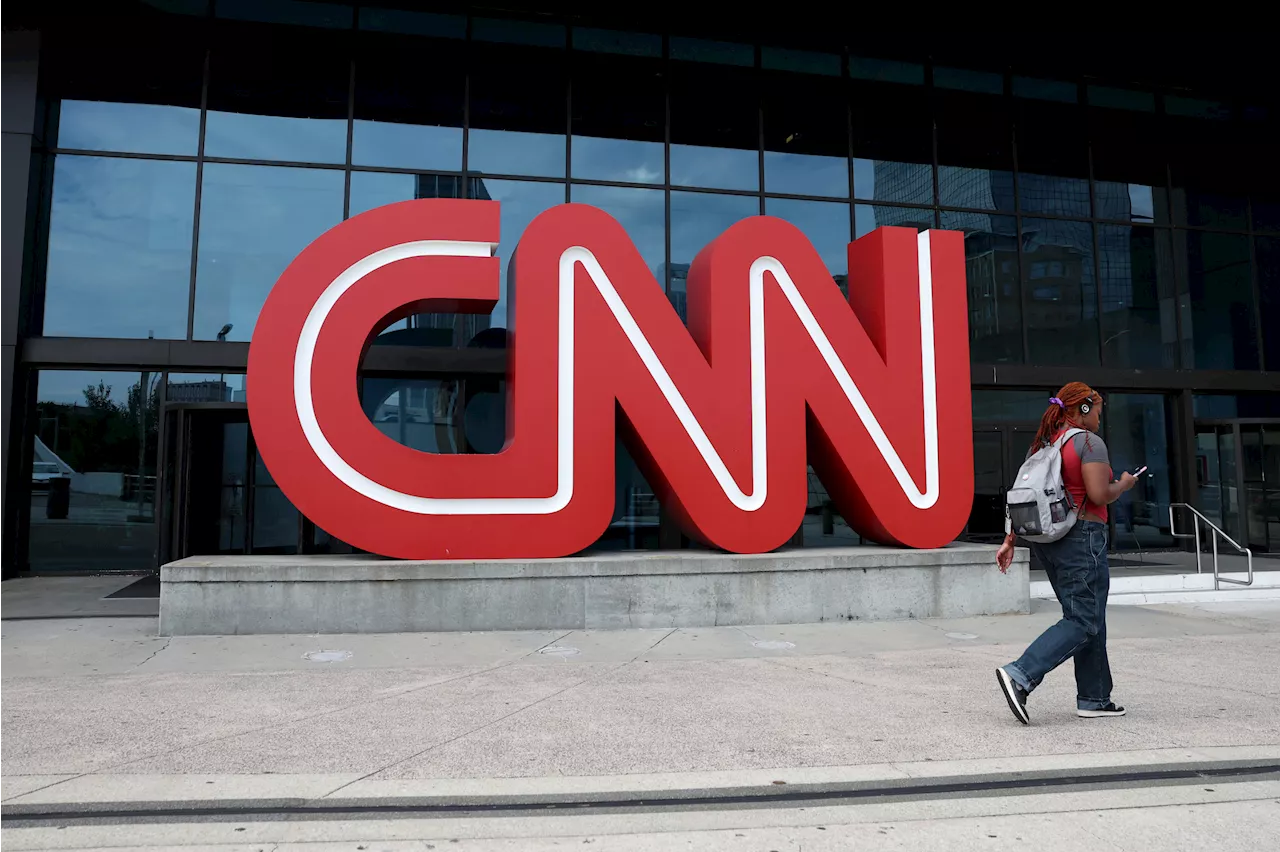Cloudflare, a leading internet connectivity platform, launches a one-click Content Credentials system to combat the spread of deepfakes and protect the authenticity of digital media. This move strengthens the Content Authenticity Initiative (CAI) and empowers publishers, creators, and users to verify the origin and ownership of content.
Cloudflare , a leading connectivity cloud company responsible for handling 20% of the internet's traffic, has launched a one-click Content Credentials system to track the origin and authenticity of digital media. This move is a significant victory for the Content Authenticity Initiative ( CAI ), of which Cloudflare is now a member.
Content Credentials, built upon the Coalition for Content Provenance and Authenticity (C2PA) framework, empower publishers, creators, and everyday web users to trace the journey of the media they encounter. It also guarantees that creators receive accurate and consistent credit for their work. Matthew Prince, co-founder and CEO of Cloudflare, emphasizes the crucial role of trust and authenticity in the future of the internet. He states, 'By integrating Content Credentials across our global network, we can help media and news organizations verify authenticity and maintain ownership of their work, wherever it moves online. This isn't merely about securing individual images; it's about equipping publishers with the tools they need to uphold trust and remain relevant in the age of AI.'Cloudflare acknowledges that while the ease of sharing photos across the internet is undeniable, verifying their authenticity and identifying the creator becomes increasingly challenging. This concern is amplified in the era of generative AI, where the ability to create convincing fake images has surpassed the realm of memes and jokes, potentially leading to real-world consequences and eroding public trust in photographs over time. Cloudflare's implementation of Content Credentials aims to mitigate the risks of image theft and misattribution. By embedding these credentials within its platform, Cloudflare seeks to prevent situations where photographers' images are stolen and circulated online, stripped of their identifying information. 'Cloudflare's adoption of Content Credentials is a major win for Content Credentials, particularly at the final stages of the content creation and management lifecycle,' explains Andy Parsons, Senior Director of Content Authenticity at Adobe. 'Ensuring these credentials are always available at the edge provides valuable 'trust signals,' guaranteeing those who interact with content online have confidence in what they engage with, especially with the rise of generative AI and deepfakes. Cloudflare strengthens the integrity of digital content, supporting content authenticity for news organizations and journalists, while also enabling creators to maintain proper attribution,' Parsons continues.The integration of Content Credentials with Cloudflare's platform addresses a critical gap in the content provenance chain. Previously, even if creators used C2PA-compliant cameras and editing software, their metadata could be stripped away during content delivery by a CDN. Cloudflare's solution ensures that the credentials are preserved and transmitted to the end user when a site owner or content creator chooses to retain them. Cloudflare's commitment to content authenticity stems from its collaboration with the CAI. Will Allen, Head of AI Control, Privacy, and Media Products at Cloudflare, played a pivotal role in establishing both the C2PA and the CAI while at Adobe. Allen's personal crusade against deepfakes, which he first encountered at Adobe in 2018, led him to champion the cause of establishing content provenance. He states, 'I’ve never stopped being obsessed with it, because it feels like unfinished business.' Allen's vision aligns with Cloudflare's mission to empower creators and safeguard the integrity of online content. He firmly believes that through cryptographic verification, they can establish a level of truth that transcends the digital realm
CONTENT AUTHENTICITY DEEPFAKES CLOUDFLARE GENERATIVE AI CONTENT CREDENTIALS C2PA CAI INTERNET SECURITY
United States Latest News, United States Headlines
Similar News:You can also read news stories similar to this one that we have collected from other news sources.
![]() Sony's Content Authenticity Solution (CAS) Verifies Image AuthenticitySony introduces its Content Authenticity Solution (CAS), a system designed to verify the authenticity of images captured with Sony cameras. CAS leverages the Coalition for Content Provenance and Authenticity (C2PA) standard, embedding digital signatures and 3D depth information in captured images. This technology allows for the verification of image origin, capture time, and the presence of a real-life subject, combating the growing concerns surrounding misinformation and deepfakes.
Sony's Content Authenticity Solution (CAS) Verifies Image AuthenticitySony introduces its Content Authenticity Solution (CAS), a system designed to verify the authenticity of images captured with Sony cameras. CAS leverages the Coalition for Content Provenance and Authenticity (C2PA) standard, embedding digital signatures and 3D depth information in captured images. This technology allows for the verification of image origin, capture time, and the presence of a real-life subject, combating the growing concerns surrounding misinformation and deepfakes.
Read more »
![]() Leica SL3-S is an IP54-Rated, 24MP Hybrid Camera with Built-In Content AuthenticityLeica announced the SL3-S, a hybrid photo and video camera that makes significant upgrades over the SL2-S in both photo and video.
Leica SL3-S is an IP54-Rated, 24MP Hybrid Camera with Built-In Content AuthenticityLeica announced the SL3-S, a hybrid photo and video camera that makes significant upgrades over the SL2-S in both photo and video.
Read more »
 The Rise of AI-Generated Content and the Search for AuthenticityGenerative AI's ability to produce vast amounts of mediocre content is transforming industries, particularly search engine optimization. AI-powered spam is flooding the web, prompting search engines to develop AI assistants to combat it. This trend raises concerns about the authenticity of online information and the increasing dominance of machine-generated content.
The Rise of AI-Generated Content and the Search for AuthenticityGenerative AI's ability to produce vast amounts of mediocre content is transforming industries, particularly search engine optimization. AI-powered spam is flooding the web, prompting search engines to develop AI assistants to combat it. This trend raises concerns about the authenticity of online information and the increasing dominance of machine-generated content.
Read more »
 Meta to Relax Content Restrictions, Focus on Illegal ContentMeta, the parent company of Facebook, Instagram, and Threads, announced it will loosen content moderation policies, particularly regarding political speech. CEO Mark Zuckerberg cited the recent elections as a cultural shift towards prioritizing free expression. Meta aims to reduce over-enforcement and focus on illegal activities like terrorism, child exploitation, and scams. The company will relocate some content moderation staff from California to Texas and introduce a more personalized approach to political content in user feeds.
Meta to Relax Content Restrictions, Focus on Illegal ContentMeta, the parent company of Facebook, Instagram, and Threads, announced it will loosen content moderation policies, particularly regarding political speech. CEO Mark Zuckerberg cited the recent elections as a cultural shift towards prioritizing free expression. Meta aims to reduce over-enforcement and focus on illegal activities like terrorism, child exploitation, and scams. The company will relocate some content moderation staff from California to Texas and introduce a more personalized approach to political content in user feeds.
Read more »
 Meta Rethinks Content Moderation, Adds Political Content to RecommendationsMeta, the parent company of Facebook, Instagram, Threads, and WhatsApp, is making significant changes to its content moderation policies. The platform will now include political content in recommendations, offering users three levels of political content exposure: less, standard (default), and more. This move comes as part of a broader series of changes Meta is implementing, and some speculate it could be an attempt to appease political figures like Donald Trump.
Meta Rethinks Content Moderation, Adds Political Content to RecommendationsMeta, the parent company of Facebook, Instagram, Threads, and WhatsApp, is making significant changes to its content moderation policies. The platform will now include political content in recommendations, offering users three levels of political content exposure: less, standard (default), and more. This move comes as part of a broader series of changes Meta is implementing, and some speculate it could be an attempt to appease political figures like Donald Trump.
Read more »
 CNN Employee Questioned Authenticity of Afghan Evacuation Report in $1 Billion Defamation LawsuitA $1 billion defamation lawsuit against CNN centers around a 2021 report on private contractors involved in evacuating Afghans after the US withdrawal. A senior CNN employee expressed concerns about the report's credibility.
CNN Employee Questioned Authenticity of Afghan Evacuation Report in $1 Billion Defamation LawsuitA $1 billion defamation lawsuit against CNN centers around a 2021 report on private contractors involved in evacuating Afghans after the US withdrawal. A senior CNN employee expressed concerns about the report's credibility.
Read more »
